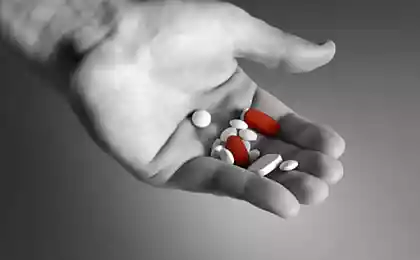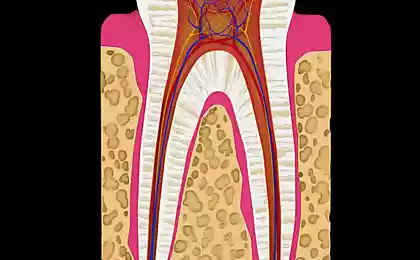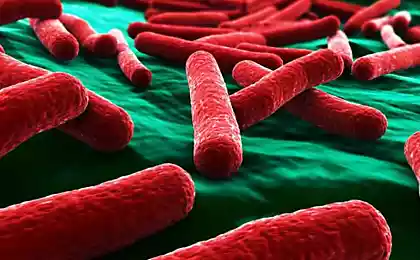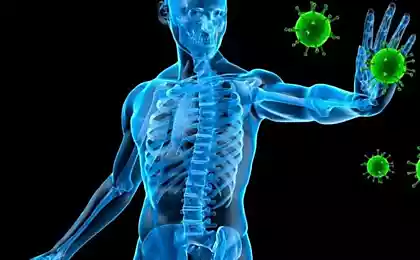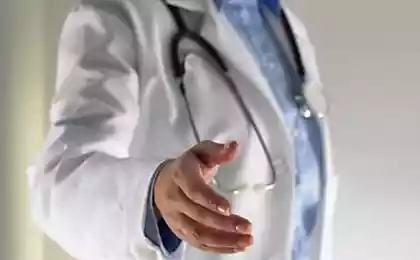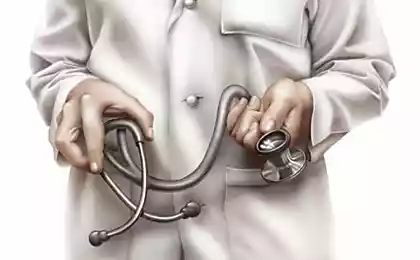184
Cheat sheet for caring moms! Remember, keep it.
Children often get sick, every parent knows it. This is quite understandable, because they are constantly in places where there are many people, and it is much easier to catch a viral infection. Prevention is a topic for another article, and today we will talk about how to treat a child if he or she is already ill.
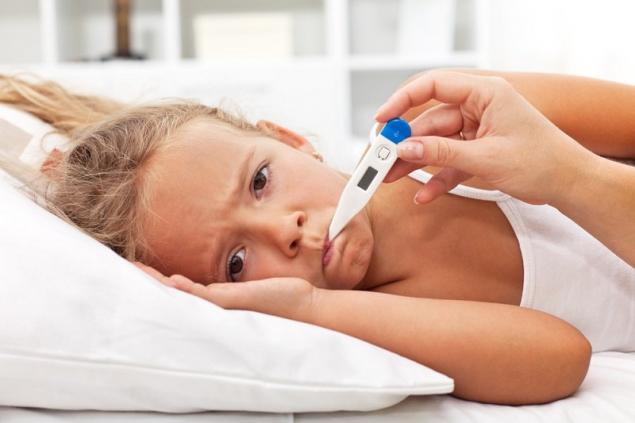
DepositPhotos
Of course, when a child is sick, it is best to consult a doctor. Not all colds are treated the same way. It is very important to determine whether it is a viral or bacterial infection. This depends on the further treatment plan. It's not a panacea, though. Most doctors mindlessly prescribe antibiotics to children even when they are not needed at all.
When should I use antibiotics? Can they treat any infection? Editorial "Site" They will answer these questions so you can see if your child is being treated correctly.
What to do first when a child is sick: run to a pharmacy or laboratory to take a test? Definitely a doctor and a lab. A blood test is the most reliable way to determine the nature of the disease. If you went to the doctor, and he prescribes medications without taking a blood test, ask this test to prescribe. After all, most likely, such a doctor will prescribe a bunch of unnecessary drugs and antibiotics to the child in addition.
You can't treat everything with antibiotics. If this is a viral infection, then antibiotics will not only not help, but also increase the risk of complications. Remember that!
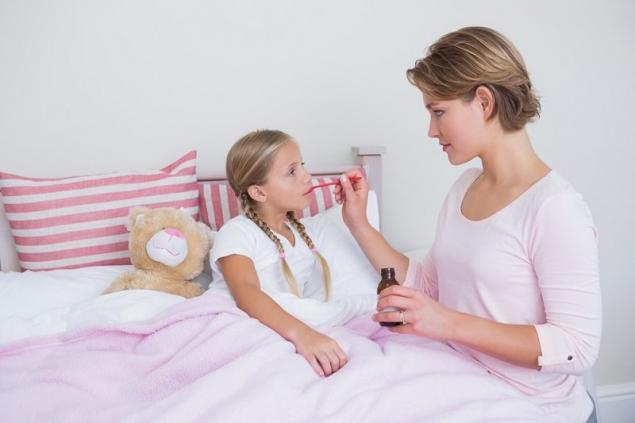
DepositPhotos
So, your kid's done a blood test, the results are on your hands. What's next? Of course, it is best to go with this to the doctor, but it does not hurt to understand the numbers. Having the results of the study and blood-lineIt will not be difficult to understand the nature of the disease.
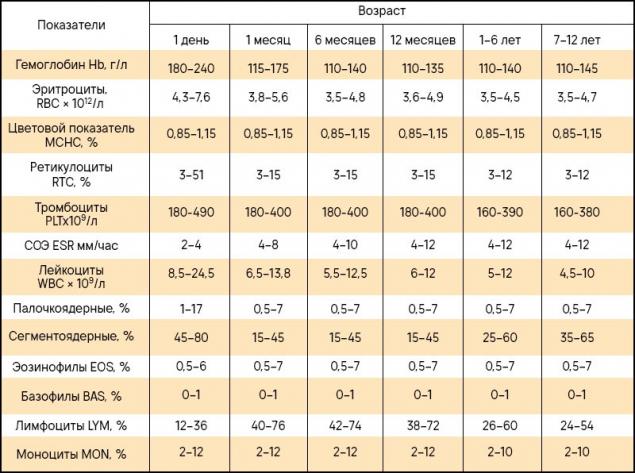
Just remember one important thing: an increased level of leukocytes, ESR, lymphocytes is a virus, and an increased level of leukocytes, ESR, segment nuclear and rod-core neutrophils, as well as a reduced number of lymphocytes is a bacterial infection. Without an increase in neutrophils, a bacterial infection does not happen.
For example, if the results of the tests you see that leukocytes, say, 15.4, and lymphocytes 15-20, then it is already likely to be a bacterial infection. And here only antibiotic treatment, the doctor will prescribe the necessary dosage. If the indicators of lymphocytes and leukocytes are high, and the doctor still insists on antibiotics, then this is a reason to refuse such treatment.

DepositPhotos
If a child is infected with the virus, then he does not need any antibiotics, regardless of what kind of virus it is. In general, the treatment of viral diseases is not swallowing tablets, but creating such conditions that the body can easily cope with the virus. In the room where the child is sick, it should be cool and humid. You need to constantly ventilate the room, wash the floors.
The child should be well wrapped and constantly watered with a warm drink: tea, compote, fruit. Oral rehydration solutions can be purchased. As long as he drinks plenty of fluids. You can’t force a child to eat if he doesn’t want to. Food should be light and liquid. Soups would be great.

DepositPhotos Do not use any grandmother's means: cans, mustard, rubbing. Leave the child alone, let him rest and recover slowly. If the temperature rises, you should also not immediately take everything that is in the first aid kit. You don’t have to reinvent the wheel, just follow the golden rules of temperature control.
What about antiviral drugs? All interferons for topical use and for swallowing are drugs with unproven efficacy or “medicines” with proven ineffectiveness. Here is everything you need to know about treating viral infections.
In this video, Dr. Komarovsky once again talks about whether to see a doctor and in what case it is necessary. Every parent needs it!
about:blank
The health of the child is the most important concern of every parent. It is best to entrust such a valuable thing to doctors, but it does not hurt to know the basic rules yourself, at least learn to understand what you need to know. What does blood count mean? Then you can provide the child with the right treatment and a speedy recovery. Take care of yourself and your children!
Be sure to keep this article, and don’t forget to share important information with your friends!

DepositPhotos
Of course, when a child is sick, it is best to consult a doctor. Not all colds are treated the same way. It is very important to determine whether it is a viral or bacterial infection. This depends on the further treatment plan. It's not a panacea, though. Most doctors mindlessly prescribe antibiotics to children even when they are not needed at all.
When should I use antibiotics? Can they treat any infection? Editorial "Site" They will answer these questions so you can see if your child is being treated correctly.
What to do first when a child is sick: run to a pharmacy or laboratory to take a test? Definitely a doctor and a lab. A blood test is the most reliable way to determine the nature of the disease. If you went to the doctor, and he prescribes medications without taking a blood test, ask this test to prescribe. After all, most likely, such a doctor will prescribe a bunch of unnecessary drugs and antibiotics to the child in addition.
You can't treat everything with antibiotics. If this is a viral infection, then antibiotics will not only not help, but also increase the risk of complications. Remember that!

DepositPhotos
So, your kid's done a blood test, the results are on your hands. What's next? Of course, it is best to go with this to the doctor, but it does not hurt to understand the numbers. Having the results of the study and blood-lineIt will not be difficult to understand the nature of the disease.

Just remember one important thing: an increased level of leukocytes, ESR, lymphocytes is a virus, and an increased level of leukocytes, ESR, segment nuclear and rod-core neutrophils, as well as a reduced number of lymphocytes is a bacterial infection. Without an increase in neutrophils, a bacterial infection does not happen.
For example, if the results of the tests you see that leukocytes, say, 15.4, and lymphocytes 15-20, then it is already likely to be a bacterial infection. And here only antibiotic treatment, the doctor will prescribe the necessary dosage. If the indicators of lymphocytes and leukocytes are high, and the doctor still insists on antibiotics, then this is a reason to refuse such treatment.

DepositPhotos
If a child is infected with the virus, then he does not need any antibiotics, regardless of what kind of virus it is. In general, the treatment of viral diseases is not swallowing tablets, but creating such conditions that the body can easily cope with the virus. In the room where the child is sick, it should be cool and humid. You need to constantly ventilate the room, wash the floors.
The child should be well wrapped and constantly watered with a warm drink: tea, compote, fruit. Oral rehydration solutions can be purchased. As long as he drinks plenty of fluids. You can’t force a child to eat if he doesn’t want to. Food should be light and liquid. Soups would be great.

DepositPhotos Do not use any grandmother's means: cans, mustard, rubbing. Leave the child alone, let him rest and recover slowly. If the temperature rises, you should also not immediately take everything that is in the first aid kit. You don’t have to reinvent the wheel, just follow the golden rules of temperature control.
What about antiviral drugs? All interferons for topical use and for swallowing are drugs with unproven efficacy or “medicines” with proven ineffectiveness. Here is everything you need to know about treating viral infections.
In this video, Dr. Komarovsky once again talks about whether to see a doctor and in what case it is necessary. Every parent needs it!
about:blank
The health of the child is the most important concern of every parent. It is best to entrust such a valuable thing to doctors, but it does not hurt to know the basic rules yourself, at least learn to understand what you need to know. What does blood count mean? Then you can provide the child with the right treatment and a speedy recovery. Take care of yourself and your children!
Be sure to keep this article, and don’t forget to share important information with your friends!
Pushkin's jewelry
“Never buy these sweets for your children! They contain oil and cause cancer, and...


